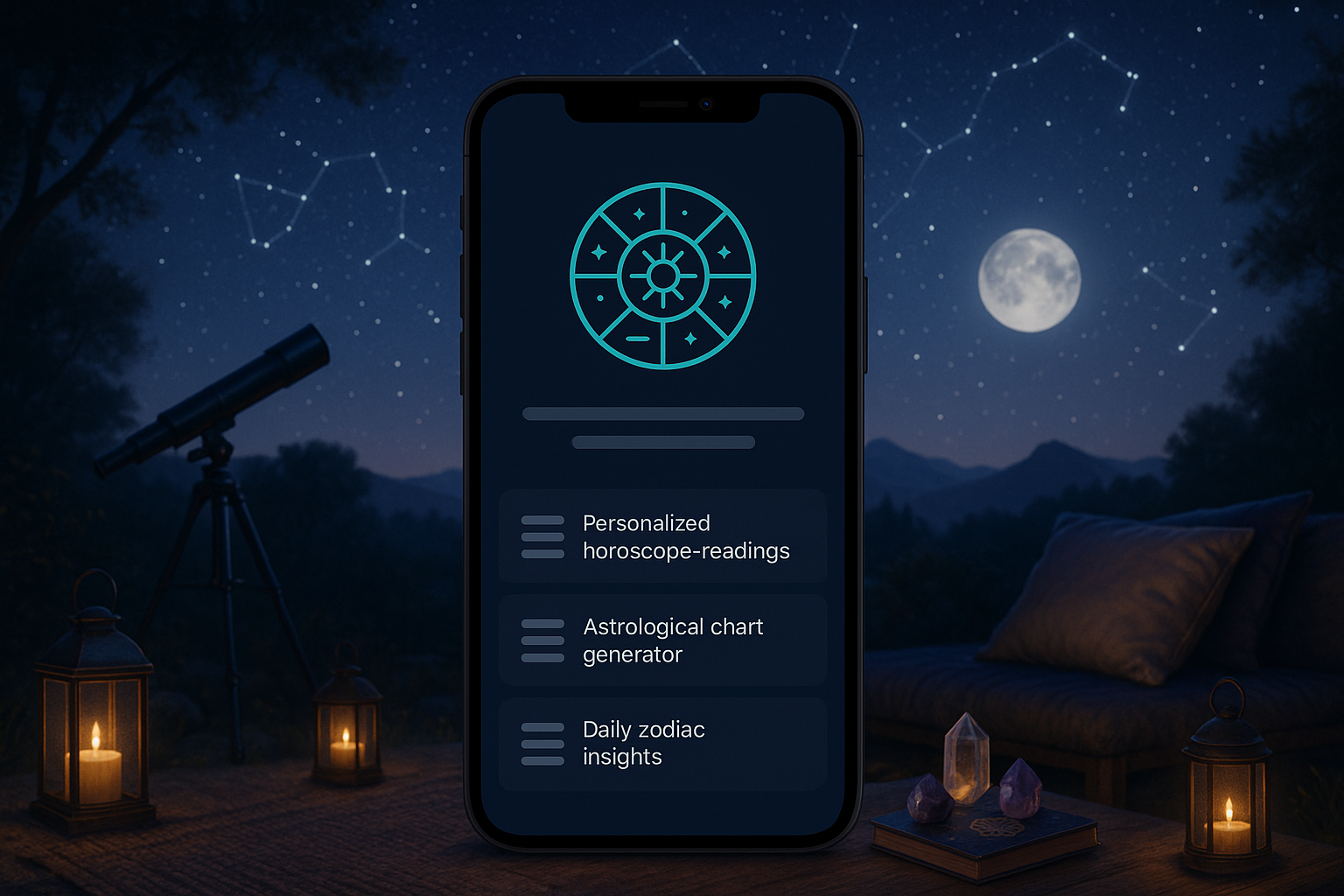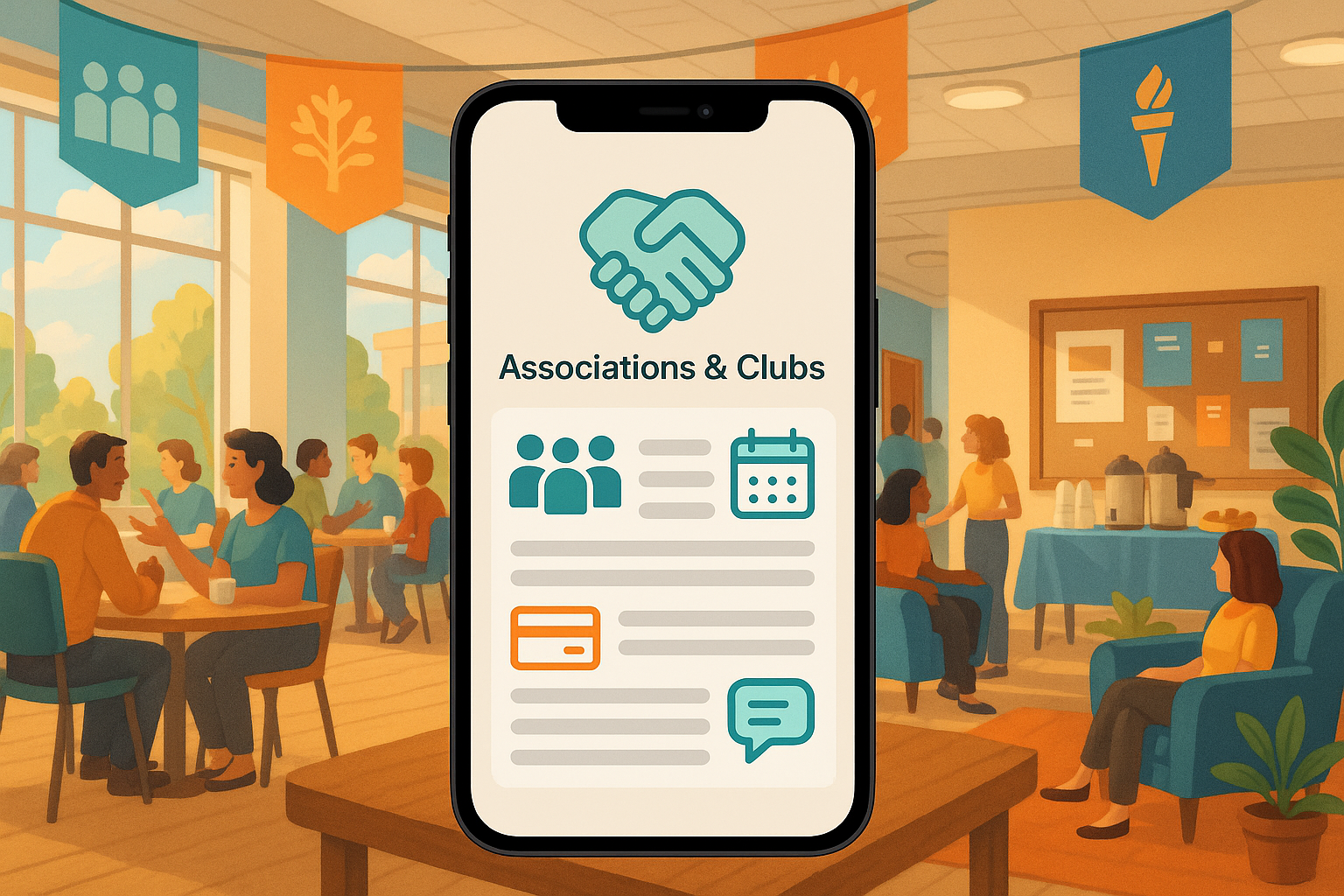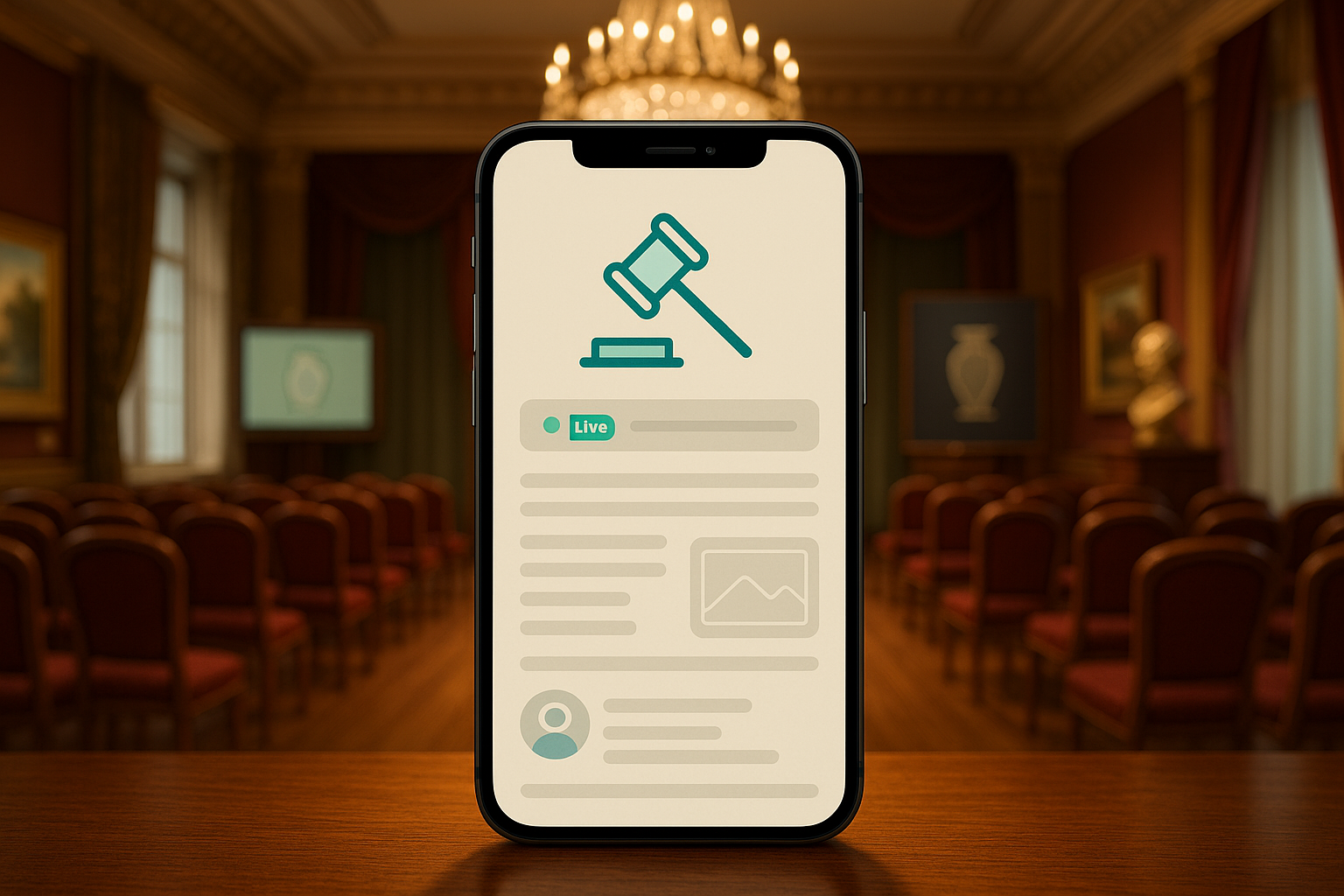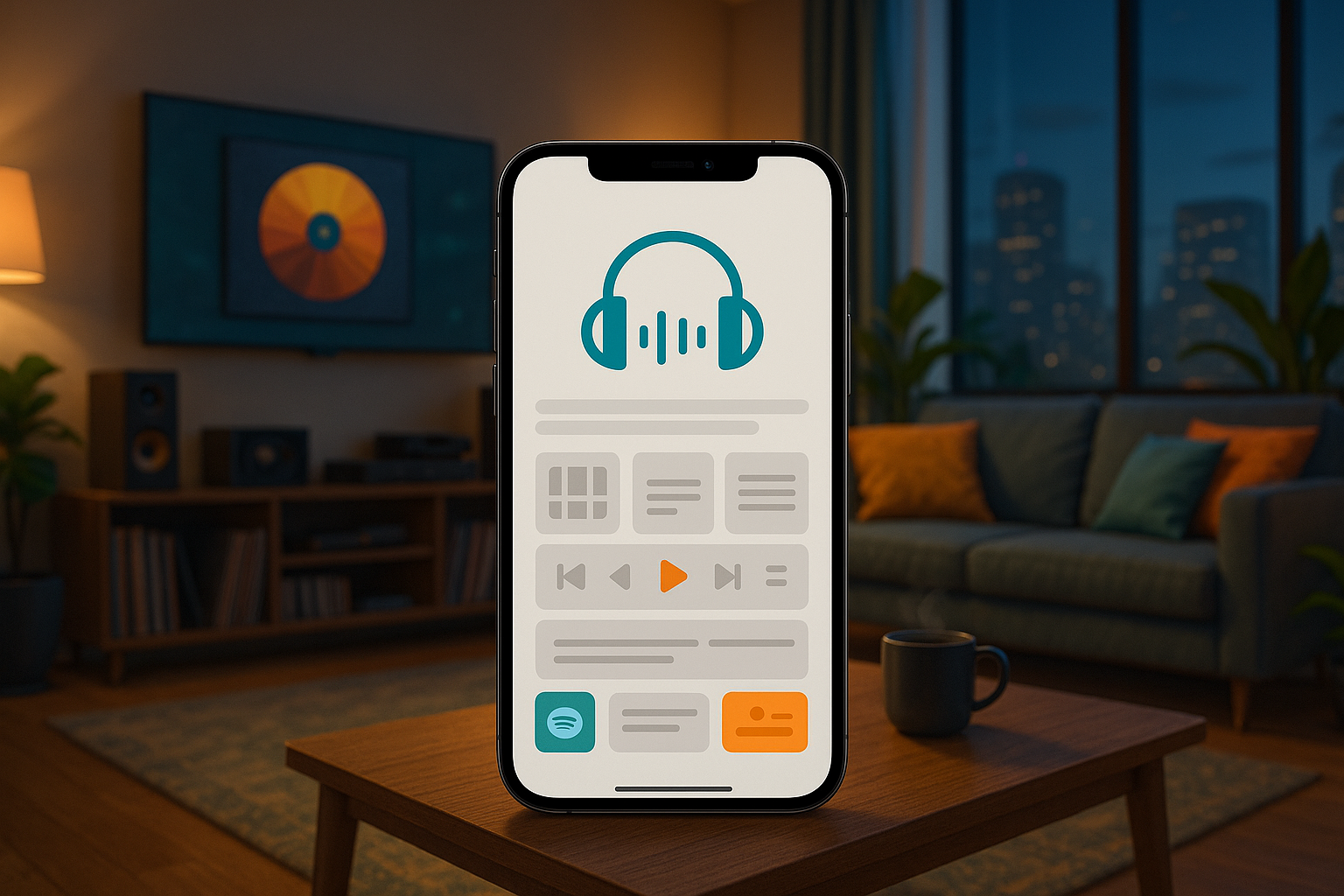A Guide to Astrology App Development
The cosmos has captivated humanity for millennia, and in the digital age, that fascination has migrated from star charts and almanacs to the palm of our hands. Astrology apps have exploded in popularity, offering users personalized insights into their lives, relationships, and futures. Yet, creating a successful astrology app is far more complex than it appears. It’s a challenging endeavor that requires a delicate balance of ancient wisdom and cutting-edge technology, from ensuring the accuracy of planetary calculations to building scalable, secure, and engaging user experiences.
Developing such an application in-house presents a formidable set of problems, from sourcing niche technical talent to managing the intricate risks of data security and real-time communication. This guide will serve as your compass, navigating the celestial complexities of astrology app development. We will explore what defines a modern astrology app, dissect the significant hurdles of in-house development, chart the diverse landscape of app types, and provide a realistic cost estimate for bringing your vision to life.
Ultimately, this journey requires an expert partner. As a top US AI-powered mobile app development firm with over 20 years of experience, we at MetaCTO specialize in transforming ambitious ideas into market-leading applications. We understand the unique fusion of art and science required for astrology app development and are here to help you build, grow, and monetize your platform. This article will show you how.
What is an Astrology App?
At its core, an astrology app is a digital platform that provides users with astrological readings and interpretations based on their personal information. Users typically create a profile by entering private data such as their name, gender, and, most critically, the precise date, time, and location of their birth. The application processes this information to generate personalized content, ranging from daily horoscopes to in-depth natal chart analyses.
However, the modern astrology app ecosystem is split into two primary business models, each with distinct functionalities and user experiences.
Horoscope-Focused Apps
These applications function as automated, self-contained platforms. They operate within a “human-less ecosystem,” where all content, such as daily, weekly, or monthly horoscopes, is pre-entered into the app’s content management system (CMS). When a user provides their information, the app’s algorithm analyzes it against this static content to deliver a generalized overview of their horoscope, often based on their sun sign or other major astrological indicators. While simpler to build, their success hinges on the quality and consistent addition of engaging content.
Astrologer Consulting and Marketplace Apps
This model bridges the gap between users and professional astrologers. These apps facilitate real-time, personalized consultations through digital channels. They can manifest in two ways:
- Single-Consultant App: The app owner is the sole astrologer available for consultations. This model is ideal for established astrologers looking to digitize and scale their personal practice.
- Astrologer Marketplace: This approach creates a virtual hub where users can browse profiles of numerous astrologers from around the globe. Users can compare astrologers based on their expertise, services offered, availability, and user reviews before booking a virtual reading. This model can host a diverse range of astrologers and cover numerous types of astrology-related services, from Vedic to Western to Tarot.
Regardless of the model, these apps serve as powerful tools for self-discovery, providing users with insightful information about their careers, relationships, and health, all interpreted through the intricate lens of planetary positioning and ancient astrological systems.
Why In-House Astrology App Development is So Difficult
Embarking on the journey of building an astrology app with an in-house team can seem like a direct path to realizing your vision. However, the path is laden with hidden complexities and significant technical challenges that can derail projects, inflate budgets, and compromise the final product’s quality. These are not trivial hurdles; they are fundamental development challenges that require specialized, multi-disciplinary expertise often unavailable in a typical in-house setup.
The Challenge of Astrological Accuracy
The credibility of an astrology app rests entirely on the precision of its calculations. This is not a simple data lookup; it’s a matter of complex astronomical and mathematical modeling that varies significantly between systems.
- Vedic Astrology: This approach demands extreme preciseness in calculating planetary positions to provide meaningful insights.
- Western Astrology: This system requires a thorough analysis of celestial bodies and an emphasis on real-time planetary positioning for the highest accuracy.
- Chinese Astrology: This method involves determining a person’s animal sign based on their birth year, layered with planetary positioning and lunar cycles.
Ensuring this level of accuracy requires more than just a skilled developer; it requires an understanding of the nuances of different astrological systems and the ability to translate them into flawless code. An error in calculation renders the entire app useless.
The Imperative of Data Privacy and Security
Astrology apps handle some of the most private user data imaginable: full names, dates and times of birth, and locations. This makes them prime targets for data breaches. Ensuring robust data privacy and security is one of the biggest challenges in development. It involves implementing end-to-end encryption, secure data storage protocols, and compliance with regulations like GDPR and CCPA. A single security failure can not only lead to legal and financial repercussions but also irrevocably destroy user trust.
The Complexity of AI and Personalization
To move beyond generic forecasts and retain users, modern astrology apps rely heavily on artificial intelligence. However, AI integration is a key development challenge.
Implementing advanced AI models for precise astrological predictions, Natural Language Processing (NLP) for features like dream analysis, or AI-driven chatbots requires a deep bench of AI and machine learning specialists. These algorithms must process large datasets to understand users and optimize readings, all while maintaining data privacy and processing efficiency. Generic, one-size-fits-all predictions lead to low user retention; deep personalization powered by sophisticated AI is what creates a “sticky” and valuable experience.
Scalability and Performance Under Pressure
A successful app will inevitably face high user traffic, especially during significant astrological events. A rapid increase in users can overload servers, leading to app crashes, agonizingly slow load times, and failed transactions. Designing and building a scalable architecture from day one is a critical technical challenge. This involves load balancing, efficient database management, and cloud infrastructure optimization—skills that require seasoned DevOps and backend engineers.
The Pitfalls of Real-Time Features
Features like live astrologer consultations and real-time chat are powerful user engagement tools, but they are notoriously difficult to implement well. Developers must contend with:
- Latency problems and bad connections that can ruin a paid consultation.
- Lousy streaming quality and slow exchanges that create a frustrating user experience.
- Unreliable systems that can drop calls or lose chat histories.
Ensuring smooth, high-quality live sessions is one of the most significant development challenges today and requires expertise in WebRTC and other real-time communication protocols.
Partnering with an experienced agency like MetaCTO mitigates these risks. Our team possesses the specialized, cross-functional expertise needed to tackle these challenges head-on. With over two decades of experience in custom mobile app development, we have established workflows and a deep understanding of how to build secure, scalable, and technologically advanced applications, allowing you to focus on your vision while we handle the complex execution.
The Diverse Universe of Astrology Apps
The astrology app market is not a monolith. It’s a vibrant ecosystem of different approaches, philosophies, and user experiences. Understanding these types is crucial for positioning your app for success. The variations can be categorized by the astrological method they employ and by the unique business model they represent.
Types Based on Astrological Approach
Different cultures have developed unique systems for interpreting the cosmos, and many apps specialize in one or more of these methods.
| Approach | Key Development Requirement | User Experience Focus |
|---|---|---|
| Vedic Astrology | Preciseness in calculating planetary positions. | Insightful information on career, relationships, and health. |
| Western Astrology | Thorough analysis of celestial bodies and real-time planet positioning. | In-depth horoscope readings with a focus on accuracy. |
| Chinese Astrology | Determining the birth year’s animal sign along with planetary positions. | Personalized predictions based on the ongoing lunar cycle. |
| Palmistry | A solid mechanism to detect and analyze hand features. | Interpretation of life paths and personality from hand analysis. |
| Tarot Reading | Simple to build, with mostly static information. | Interpretation for specific questions, changing with user input. |
| Crystal Ball Gazing | Robust system for imagery identification and intuitive interpretation. | Interpretations for horoscopes based on intuitive guidance. |
| Numerology | A guide for numerical interpretations and tools to apply them. | Determining the influence of numbers on life aspects like dating. |
| Compatibility Astrology | A robust and precise algorithm for analyzing two individuals’ charts. | Detailed reports on relationship dynamics, prospects, and challenges. |
Popular Apps as Models for Success
Examining the most popular apps in the market reveals successful strategies and feature sets that resonate with users.
-
Astrology Zone: The Credible Authority
- Considered the best overall app due to its credibility, rooted in the work of renowned astrologer Susan Miller.
- The free version offers substantial value with monthly horoscopes and brief daily readings.
- Premium subscribers get more detailed daily readings, weekly horoscopes, and access to a library of essays on planetary movements.
- Focus: High-quality, long-form content from a trusted source. It primarily offers horoscopes, not deep birth chart analysis.
-
Co–Star: The AI-Powered Social Network
- The most talked-about app, known for its chic black-and-white design and sassy, pithy content.
- It claims to use NASA planetary data and AI to trace the universe’s alignment to the exact minute of a user’s birth.
- Focus: A highly-customized, AI-driven personality analysis and social connectivity. Users can add friends to track their charts and measure compatibility for free.
-
The Pattern: The Relationship Navigator
- This app bills itself as a “social network” for understanding cosmic connections.
- It excels at relationship analysis, allowing users to connect with friends or enter a crush’s birth info to see how the cosmos might affect their bond.
- Focus: Down-to-earth insights into life and relationships, with a dedicated dating section. Though popular, it is sometimes described by users as glitchy.
-
Time Passages: The Learning Hub for Newbies
- Positioned as the best app for beginners, it offers an expansive glossary and charts that explain core concepts like sun, moon, and rising signs.
- Focus: Education and accessibility. Its free version provides personalized daily horoscopes, and its homepage makes it easy to track Mercury retrograde and moon phases. It uniquely allows users to purchase certain features à la carte.
-
Sanctuary: The Interactive On-Demand Service
- This app’s standout feature is access to on-demand, real astrologers for live chat consultations.
- It doesn’t take itself too seriously, using plenty of GIFs, emojis, and jokes.
- Focus: Interactivity and immediate access to experts. It offers free daily horoscopes but monetizes through live astrology, psychic, and Tarot readings.
-
Chaturanga Astrology: The Specific Inquiry Solver
- This app is excellent for users who want to pose specific questions and get quick, expert answers.
- After providing hyper-specific birth information, a user gets one free question answered by a real astrologer within 24 hours.
- Focus: A Q&A model. Users pay per question after their first free one, creating a direct line to professional astrologers for specific advice.
The Cost of Building a Starry-Eyed App
Estimating the cost of developing an astrology app requires a clear understanding of your project’s scope. The investment can vary dramatically based on the features you plan to offer, the complexity of the user interface, the depth of AI integration, and the platforms you target (iOS, Android, or both).
Here is a general breakdown of what you can expect to invest, based on industry data:
Tier 1: Basic Astrology App
- Cost Range: $10,000 – $18,000
- Features: This MVP (Minimum Viable Product) version typically includes the most essential features to launch and test the market.
- User Registration and Profile Management
- Basic Birth Chart Calculations
- Daily Horoscopes (based on pre-entered content)
- Simple, template-based UI/UX
Tier 2: Feature-Rich Astrology App
- Cost Range: $18,000 – $35,000
- Features: This mid-tier app offers a more engaging and personalized experience designed to improve user retention.
- All features from the Basic App
- Advanced Compatibility Analysis
- Integrated modules for Tarot or Numerology
- Push Notifications for daily readings and events
- Custom-designed and branded UI/UX
Tier 3: AI-Intensive Astrology App
- Cost Range: $35,000 – $60,000
- Features: This advanced tier leverages artificial intelligence to provide a deeply customized and unique user experience, similar to market leaders like Co–Star.
- All features from the Feature-Rich App
- AI-generated personalized horoscopes
- NLP-based dream analysis or mood tracking
- Integrated AI astrologer chatbot for user queries
- Deeper machine learning models for pattern recognition
Tier 4: Full-Scale Astrology Platform
- Cost Range: $90,000+
- Features: This represents a comprehensive, all-in-one astrology ecosystem that functions as a major business platform.
- All features from the AI-Intensive App
- Live video/chat consultations with professional astrologers
- Advanced user and revenue analytics dashboards
- Community forums or social networking features
- E-commerce integrations for selling related products (gemstones, books)
- Full multi-language support
Several other variables influence these costs. Building natively for both iOS and Android will be more expensive than using a cross-platform framework like Flutter. A custom backend with multiple third-party API integrations (like NASA planetary data) and a highly scalable infrastructure will also increase development and ongoing costs. The more custom and real-time features you include, the higher the investment required. At MetaCTO, our Rapid MVP Development service can help you launch a streamlined version of your app in 90 days or less, allowing you to validate your idea while keeping initial costs low.
How to Choose the Right Astrology App Development Partner
The success of your astrology app hinges on the expertise of your development team. Bringing this complex digital product to life requires more than just coders; it demands a partner with deep technical knowledge, industry insight, and a proven track record. As you evaluate potential partners, here is what sets a top-tier company apart.
1. MetaCTO: Your AI-Powered Development Partner
At MetaCTO, we specialize in building, growing, and monetizing complex mobile applications. We are a US-based firm with a team of experts who have launched over 120 successful projects over the last two decades. We don’t just build apps; we build businesses.
- AI and ML Expertise: We are pioneers in AI development. We leverage advanced AI and machine learning to create the personalized, intelligent features that make an astrology app stand out, from AI-driven horoscopes to advanced pattern recognition.
- End-to-End Service: We are with you every step of the way. Our process covers everything from initial strategy and validation (launching an MVP in 90 days) to building, growing, monetizing, and evolving your app. We handle the entire complex process, making it painless for you.
- Proven Track Record: Our portfolio speaks for itself. We’ve helped our clients turn ideas into successful businesses, supported over $40M in fundraising, and earned a 5-star rating on Clutch. We build apps the right way, from day one.
- Deep Technical Acumen: Our team consists of seasoned experts who understand how to build scalable, secure, and high-performance applications. We tackle the toughest technical challenges, from ensuring astrological accuracy to implementing flawless real-time consultations.
What to Look for in Other Development Companies
When vetting other potential partners, ensure they meet these critical standards:
- Dual Expertise in Astrology and Technology: A great partner understands the nuances of astrological calculations and can implement them accurately within a user-friendly interface. Look for companies with team members who have astrological backgrounds or partnerships with professional astrologers.
- Demonstrable Technical Proficiency: The company should be abreast of the latest technologies, including AI/ML, IoT, and modern frameworks like NodeJS and Flutter. This ensures they can build a competitive app with state-of-the-art features.
- Commitment to Scalable Architecture: An expert firm builds apps with scalability in mind from the start. They create flexible architectures that can accommodate a growing user base and new features without performance degradation.
- Rigorous Quality Assurance: A professional company employs rigorous testing protocols. This includes checking the accuracy of astrological calculations, comprehensive user experience testing, and ensuring cross-platform compatibility for a polished final product.
- Robust Security and Data Privacy Practices: Your partner must implement robust security measures and adhere strictly to data privacy regulations like GDPR. This protects your users and your business.
- Comprehensive Post-Launch Support: The work isn’t over at launch. A top company offers ongoing support and maintenance, providing regular updates, bug fixes, and feature enhancements to keep your app relevant and running smoothly.
Choosing the right development partner is the single most important decision you will make. It’s an investment in a team that can navigate the technical cosmos and turn your vision into a star of the app store.
Conclusion: Charting Your Path Forward
Developing an astrology app is a journey into a domain where ancient wisdom meets modern technology. As we’ve explored, this path is filled with unique challenges, from the non-negotiable demand for calculative accuracy and robust data security to the complexities of creating a scalable, engaging, and deeply personalized user experience with AI. We’ve charted the diverse landscape of app types—from straightforward horoscope readers to bustling astrologer marketplaces—and provided a realistic map of the investment required to build them.
Building such an application is not a task for the uninitiated. It requires a dedicated, experienced, and multi-talented team that understands both the art of astrology and the science of software development. Attempting this in-house can quickly become overwhelming, leading to costly mistakes and a product that fails to meet user expectations.
This is where a strategic partnership becomes your greatest asset. At MetaCTO, we provide the expertise and end-to-end support needed to navigate this complex development journey successfully. We transform your ambitious idea into a tangible, market-ready app that is better than you could have imagined. Don’t let technical hurdles dim your cosmic vision.
Ready to bring your astrology app to life? Talk with an expert at MetaCTO today and let’s build your app the right way, from day one.






